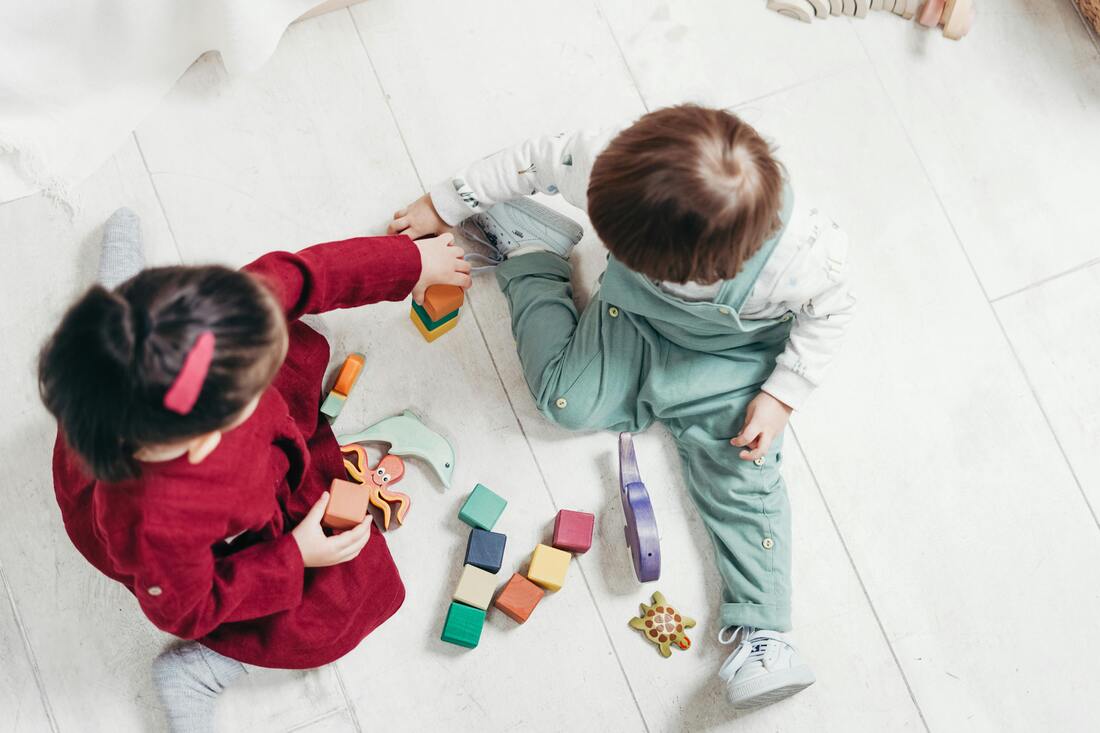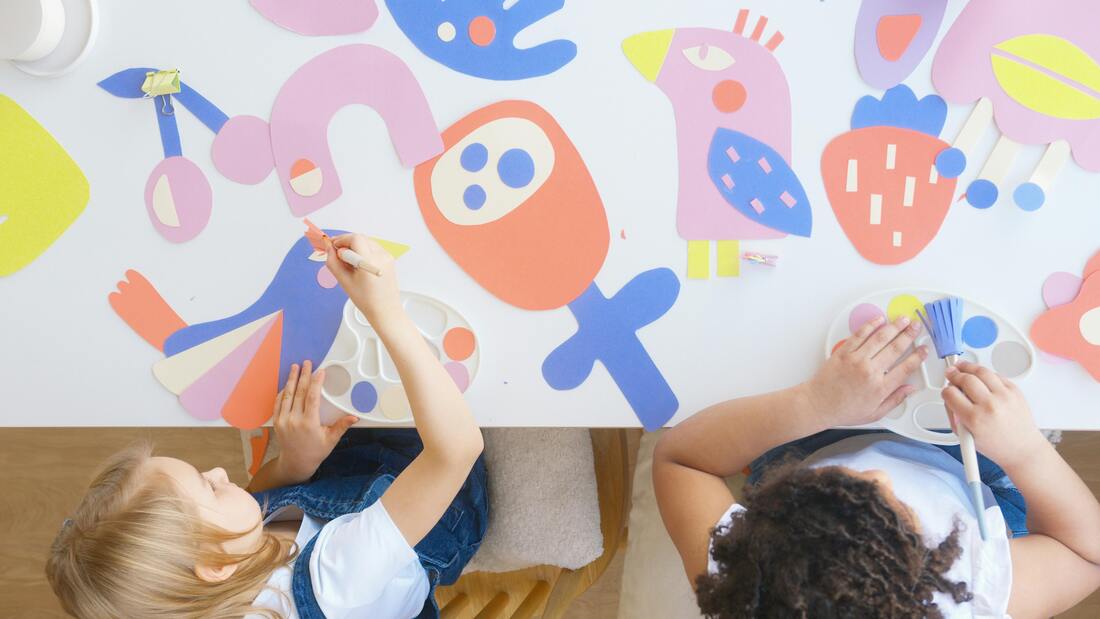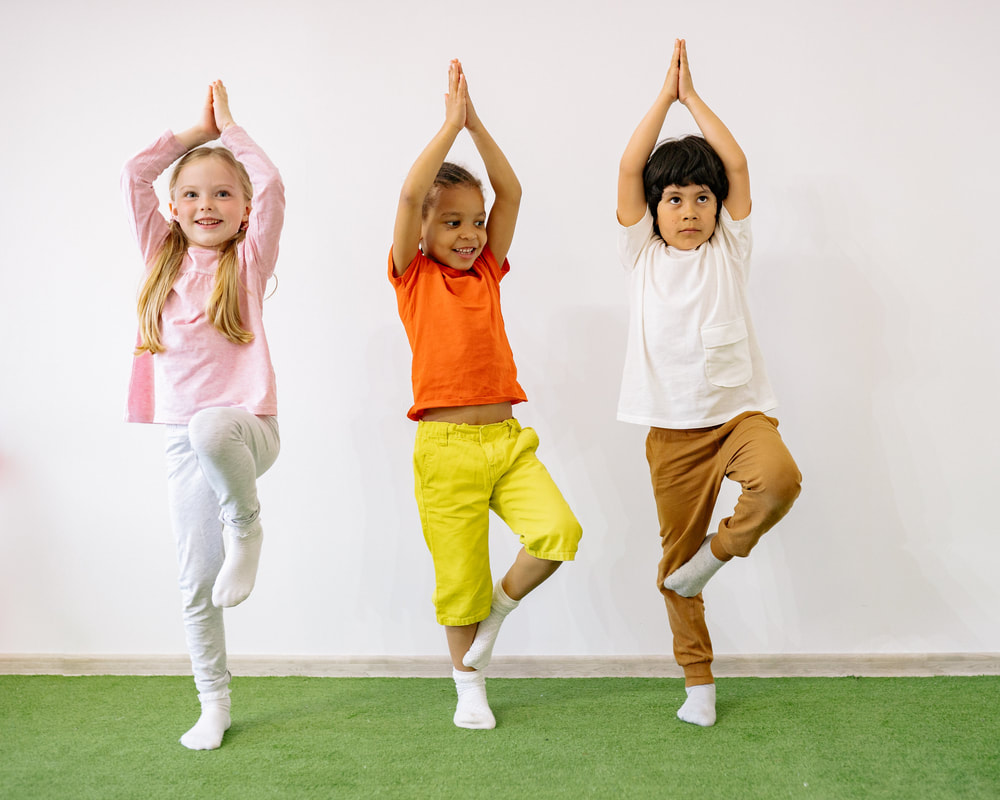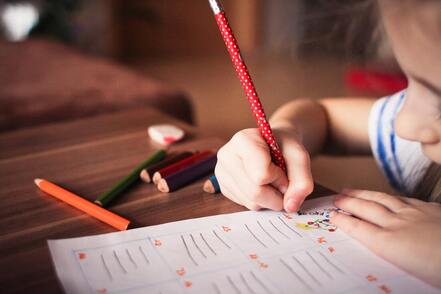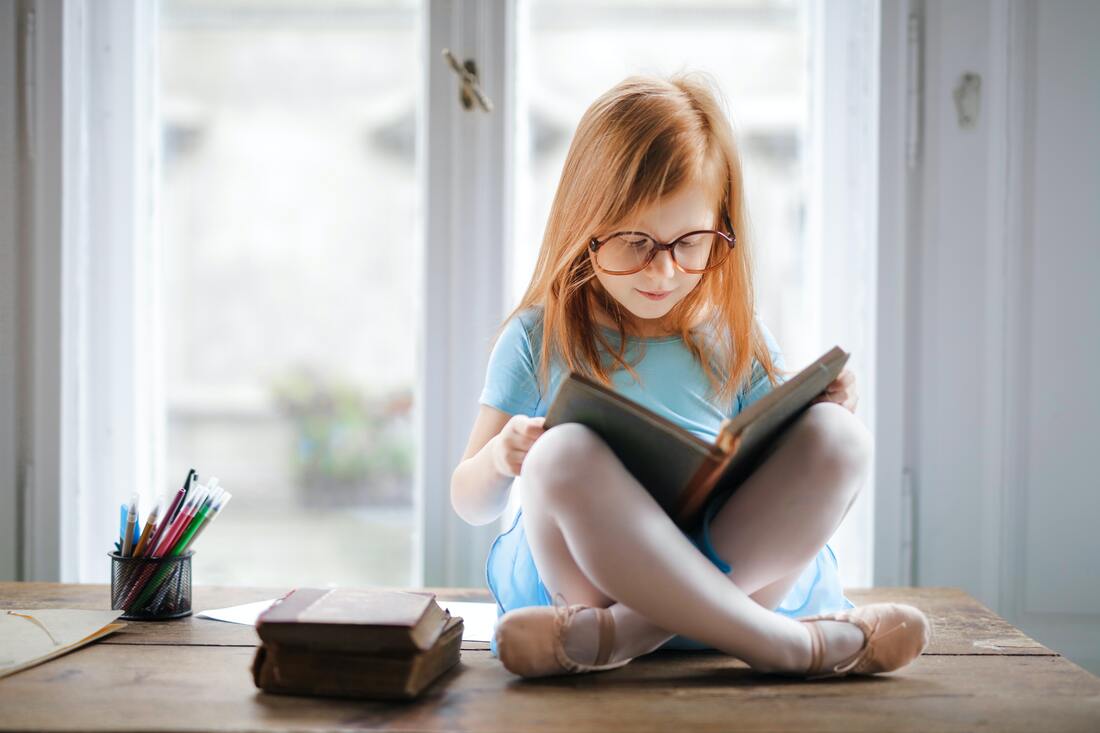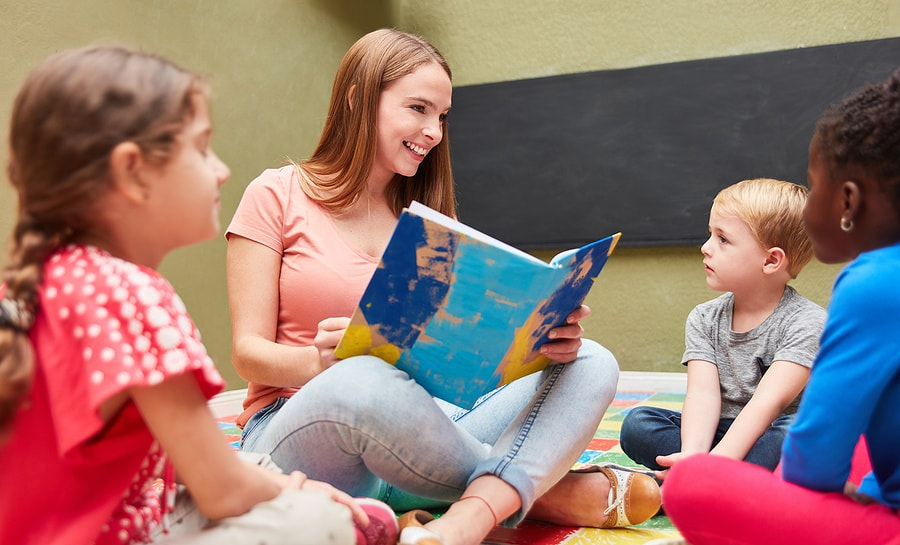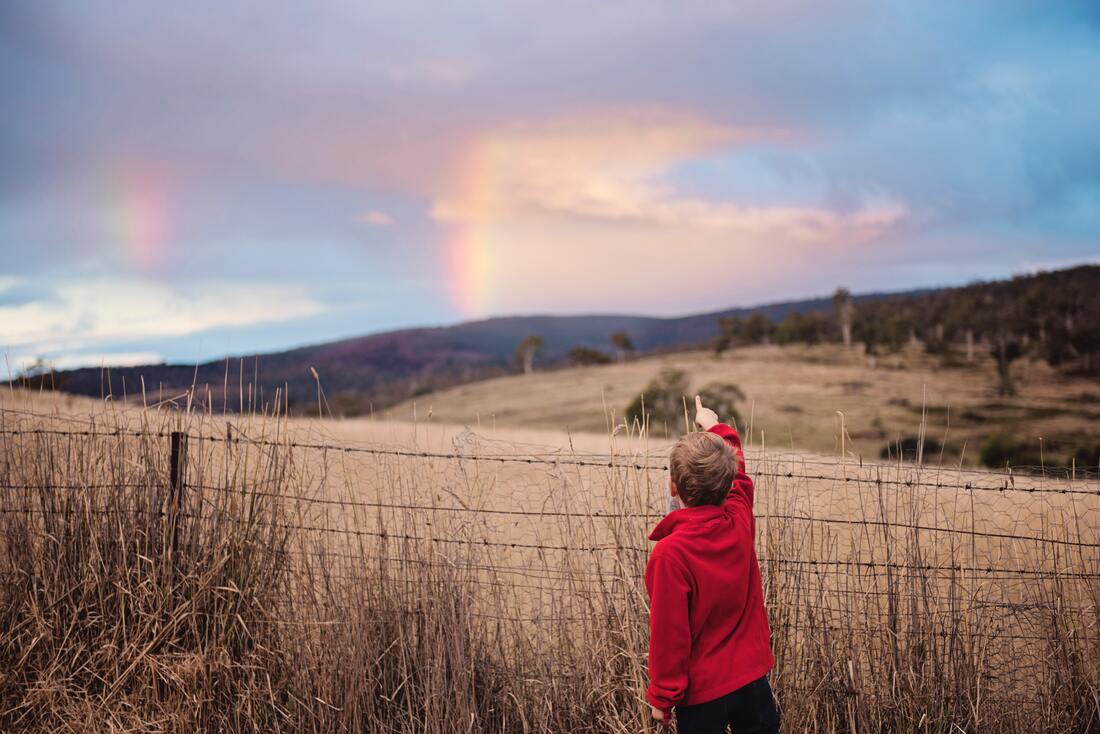|
Consistency is a cornerstone of an effective Montessori toddler program, particularly during the toddler years. Toddlers, in their formative stage, thrive on routine and predictability. Establishing and maintaining consistency in their lives plays a crucial role in fostering a sense of security, emotional well-being, and healthy development. Consider these 4 reasons why toddlers benefit from consistency in their daily lives.
1. Emotional Security Consistency provides a stable anchor that contributes to emotional security. Knowing what to expect in their daily routines, such as mealtimes, playtime, and bedtime, allows toddlers to feel a sense of predictability and control. When toddlers feel secure in their routines, they are more likely to express themselves, explore their surroundings, and build healthy relationships. 2. Development of Trust Consistency in daily routines is instrumental in the development of trust in a Montessori toddler program. Whether it's responding promptly to a hungry cry, providing comfort during times of distress, or maintaining a consistent bedtime routine, upholding routines builds a sense of trust with toddlers. This trust forms the basis for secure attachment, influencing the child's ability to form healthy relationships. 3. Cognitive Development Toddlers are absorbing vast amounts of information as they explore the world around them. When toddlers engage in consistent activities and experiences, their brains form connections that enhance to cognitive development. These repeated experiences enhance memory and support the development of cognitive skills needed for future learning and problem-solving abilities. 4. Setting Clear Boundaries Consistency in expectations and boundaries is a powerful tool in guiding toddler behavior. Toddlers are at an age where they are learning to understand cause and effect, as well as societal norms. Consistent responses to behavior, whether positive or corrective, help toddlers understand the consequences of their actions. When caregivers maintain consistent expectations and consequences, toddlers develop a sense of accountability and responsibility. Implementing Consistency in Toddler Environments Now that we understand the importance of consistency for toddlers, let's explore practical ways to implement it in their daily lives:
Consistency is a fundamental component in nurturing the healthy development of toddlers. As role models embrace the role of consistency in toddler development, they contribute significantly to the child's readiness for future learning and relationships.
0 Comments
In Montessori education, the autumn season becomes a canvas for creativity and exploration. To demonstrate, here are four exciting fall craft ideas that Montessori elementary children will enjoy, providing a hands-on and imaginative approach to embracing the wonders of autumn.
1. Nature-Inspired Collage Creations Encourage Montessori children to collect treasures from nature to create stunning collages. From leaves and acorns to pinecones and twigs, the possibilities are endless. This activity not only celebrates the beauty of fall but also integrates a connection to the environment, fostering a sense of appreciation for the natural world. Implementation
2. Harvest-themed Handprint Art Montessori elementary children can use their handprints to create personalized pumpkins, adding details like vines, leaves, and even little creatures. This craft not only explores artistic expression but also enhances fine motor skills as children carefully paint and decorate their handprint pumpkins. Implementation
3. Sensory Leaf Rubbings Invite Montessori children to explore the textures of autumn leaves through sensory leaf rubbings. By incorporating a variety of leaves, educators can introduce discussions about tree types, enhancing the learning experience. Implementation
4. Autumn-themed 3D Paper Trees Bring the enchantment of autumn forests to life by creating 3D paper trees. Montessori children can craft individual trees or collaborate on a collective forest project. This activity not only explores spatial awareness and geometry but also encourages collaboration and a sense of shared accomplishment. Implementation
By infusing Montessori education with exciting fall craft ideas, instructors create an environment that stimulates creativity, sensory exploration, and a connection to the changing seasons. These activities engage Montessori school children in hands-on projects and foster skills such as fine motor development, collaboration, and an appreciation for nature. Rainy days can put a damper on outdoor activities, leaving both teachers and young students feeling cooped up and restless. However, physical education remains essential for the development of kindergarteners. To get you started on a little rainy day adventure, consider these four fantastic physical education activities suitable for Montessori kindergarten students on rainy days.
1. Indoor Obstacle Course An indoor obstacle course is an exciting way to keep Montessori students active and improve their motor skills. You can create a simple course using pillows, chairs, hula hoops, and masking tape. Start by setting up a course with these items in your classroom, ensuring that it's age-appropriate and safe. Students take turns navigating the course, jumping over pillows, crawling under chairs, and stepping inside hula hoops. This activity teaches teamwork and cooperation by encouraging students to cheer on their classmates. Indoor obstacle courses enhance balance, coordination, and spatial awareness. 2. Dance Party Montessori kindergarten students love to move and groove and a dance party is a fantastic way to channel their energy. Turn on some lively, age-appropriate music, and let the kids dance away. Dancing is an excellent way to boost cardiovascular health and enhance coordination, and it also allows for creative expression. Add academic value, by incorporating dance routines that correspond to the alphabet, numbers, or shapes. 3. Balloon Volleyball Balloon volleyball is an excellent option for rainy days when outdoor sports are not possible. This activity can be played in a gymnasium or a spacious classroom. All you need is a balloon and a designated "net" area, marked with masking tape on the floor. Divide the class into two teams and encourage them to bat the balloon back and forth over the "net" using their hands. Balloon volleyball is a safe and enjoyable way to improve hand-eye coordination and teamwork while providing physical exercise. 4. Yoga and Stretching Incorporating yoga and stretching exercises in kindergarten helps students develop flexibility, balance, and relaxation techniques. Rainy days provide an excellent opportunity to introduce these activities into the physical education routine. Create an appropriate atmosphere by dimming the lights and playing soothing music. Guide the students through basic yoga poses such as the child's pose, downward dog, and the tree pose. Add a few simple stretching exercises to help improve their flexibility. Yoga and stretching can be both physically and mentally beneficial and promotes relaxation and self-awareness. Rainy days don't have to mean skipping physical education. With a little creativity and planning, teachers can keep kids engaged, active, and healthy indoors. By fostering a love for movement and exercise from an early age, you set the foundation for a lifetime of health and well-being. Choosing a private kindergarten for your child is an important decision that can shape their early educational experiences. To ensure you select the right private kindergarten, consider focusing on the following areas and looking for specific factors in each.
1. Curriculum and Teaching Philosophy
2. Class Size and Student-to-Teacher Ratio
3. Teacher and School Qualifications
4. Safety and Facilities
5. Parental Involvement and Communication
By considering these factors and asking related questions, you can make a well-informed decision when choosing a private kindergarten that aligns with your child's educational needs and your family's values. Instilling a love for reading at a young age is a gift that keeps on giving. Preschool is a crucial time for nurturing this passion, and classic children's books have a unique ability to captivate young minds. Here are five timeless literary treasures that belong on every child's bookshelf because they keep preschoolers engaged in the magical world of reading.
1. "Where the Wild Things Are" by Maurice Sendak This beloved tale follows the adventures of Max, a young boy who sails to a mysterious island inhabited by wild creatures. Its imaginative storyline and beautiful illustrations resonate with preschool curiosity and imagination, encouraging them to embark on their literary journey. 2. "The Very Hungry Caterpillar" by Eric Carle Eric Carle's iconic book introduces children to the lifecycle of a caterpillar transforming into a butterfly. The vibrant illustrations and simple narrative make it an ideal choice for preschoolers. As they follow the caterpillar's journey, children learn about the days of the week, numbers, and metamorphosis. 3. "Brown Bear, Brown Bear, What Do You See?" by Bill Martin Jr. and Eric Carle This rhythmic and repetitive picture book introduces young readers to a variety of animals and colors. The predictable text engages preschoolers in a call-and-response pattern, making it an excellent choice for building early literacy skills and vocabulary. 4. "The Tale of Peter Rabbit" by Beatrix Potter The misadventures of Peter Rabbit and his siblings in Mr. McGregor's garden have charmed generations of young readers. Beatrix Potter's enchanting storytelling and delicate illustrations transport preschoolers to a world of wonder, teaching them about consequences and the importance of making wise choices. 5. "Corduroy" by Don Freeman Corduroy, a stuffed bear in a department store, yearns for a home of his own. This heartwarming story emphasizes friendship, acceptance, and the power of love. preschoolers connect with Corduroy's journey to find belonging, and the story teaches valuable lessons about empathy and kindness. These magical classic books for preschoolers have a timeless appeal that transcends generations. By introducing children to literary gems, educators and parents can nurture a lifelong love for reading. These stories not only entertain, but also provide valuable life lessons, stimulate imagination, and build early literacy skills. As kids immerse themselves in these literary treasures, they embark on a journey of discovery and learning that will shape their reading journey for years to come. Introducing daycare children to the concept of calendars is an exciting opportunity to teach them about time, days, weeks, and months. Calendars play a vital role in organizing daily activities and events, and by familiarizing young learners with this tool, we help them build essential time management skills. Here are four engaging ways to teach daycare children about calendars, making the learning process fun and interactive.
Calendar Circle Time Start each day with a calendar circle time, where Montessori daycare children gather in a circle and interact with a large wall calendar. Point to the current date, day of the week, and month, and involve the children in identifying them. Use colorful visuals and fun stickers to mark special days, holidays, or birthdays on the calendar. Discuss upcoming events and activities to build anticipation and excitement. Weather and Season Charts Incorporate weather and season charts into the daily calendar circle time. Create simple charts where children can mark the weather for the day with pictures or symbols. Discuss the current season and how it affects the weather and outdoor activities. By connecting the calendar to real-life experiences like weather changes, children can grasp the concept of time more effectively. Monthly Themed Activities Plan monthly themed activities related to the calendar. For example, have a "Days of the Week" activity where children participate in fun games and crafts for each day of the week. Another idea is a "Month Memory Game," where children match pictures or symbols representing different months. These engaging activities not only teach about the calendar but also reinforce learning through play. Calendar Journals Introduce calendar journals for older Montessori children, where they can create their own mini-calendar to track events and activities. Provide templates for each month and encourage them to write or draw about significant experiences throughout the month. This journaling practice allows children to reflect on their daily routines and gain a deeper understanding of time passing. Teaching daycare children about calendars is a valuable opportunity to introduce them to the concept of time and organization. Through engaging activities such as calendar circle time, weather and season charts, monthly themed activities, and calendar journals, children can develop essential time management skills while having fun. The interactive and hands-on approach to learning about calendars ensures that children grasp the concepts in an enjoyable and meaningful way. By integrating calendars into the daily routine, parents and teachers lay the foundation for effective time management and organizational skills. Motivating and fostering a love for reading is essential for private kindergarten readers. By incorporating simple activities at home, parents can provide an enriching environment that promotes reading engagement and literacy development. Here are some easy things you can do to motivate young readers.
Create a Reading Nook Designate a cozy reading nook in your home where your Montessori kindergarten child can immerse themselves in books. Set up a comfortable chair or cushion, along with a small bookshelf or basket filled with age-appropriate books. Make this space inviting and special, allowing your child to have a dedicated spot for reading and exploration. Read Aloud Daily Make reading aloud a daily ritual. Choose a variety of books that cater to your child's interests and reading level. Engage your Montessori child by using expressive voices, making sound effects, and asking open-ended questions about the story. Reading aloud not only enhances their language skills but also cultivates a love for storytelling and sparks their imagination. Visit the Library Take regular trips to your local library. Allow your child to explore different genres and select books of their choice. Encourage them to interact with the librarians, participate in storytime sessions, and join reading programs or clubs. The library provides a stimulating environment where your child can discover new books, engage with fellow readers, and develop a sense of ownership over their reading journey. Set Reading Challenges Set achievable reading challenges or goals to motivate your child. For example, you can create a reading chart or use a reading app to track their progress. Offer incentives or rewards for reaching milestones, such as a special outing or a small treat. These challenges provide a sense of accomplishment and encourage your child to engage in regular reading practice. Encourage Storytelling and Writing Promote creativity and language skills by encouraging your child to tell their own stories or write their own books. Provide them with blank notebooks, writing materials, and art supplies. Allow them to illustrate their stories and share them with family and friends. This activity not only enhances their reading and writing abilities but also boosts their confidence as young storytellers. Motivating your Montessori kindergarten reader at home is a wonderful way to support their literacy development and foster a lifelong love for reading. By creating a reading nook, reading aloud daily, visiting the library, setting reading challenges, and encouraging storytelling and writing, you provide an engaging and supportive environment for your child's reading journey. Developing a strong sense of self-esteem is crucial for preschool children as it lays the foundation for their confidence, resilience, and overall well-being. As parents and caregivers, we have the opportunity to nurture and support our preschoolers in building a positive self-image. In this article, we will explore four proven strategies for developing your preschool child's self-esteem. With these strategies, you can empower your child to grow into a confident and happy individual.
1. Encourage and Praise Effort One effective strategy for developing your Montessori preschool child's self-esteem is to encourage and praise their efforts. Focus on the process rather than the outcome. Acknowledge and celebrate their hard work, persistence, and problem-solving abilities. Offer specific and genuine praise, highlighting their strengths and accomplishments. 2. Provide a Safe and Supportive Environment Creating a safe and supportive environment is vital for fostering self-esteem in preschool children. Ensure that your child feels secure and loved at home. Offer consistent boundaries and clear expectations, providing a sense of structure and stability. Encourage open communication, actively listening to your child's thoughts, feelings, and concerns. Validate their emotions and provide reassurance when faced with challenges. 3. Promote Independence Offer age-appropriate opportunities for your child to make choices and take on responsibilities. Encourage them to solve problems independently and provide guidance when needed. Celebrate their achievements and show confidence in their abilities. By fostering independence and decision-making, you empower your child to believe in themselves and develop a sense of competence and self-assurance. 4. Foster a Growth Mindset Encourage them to embrace challenges and view setbacks as opportunities for learning and growth. Teach them that intelligence and abilities can be developed through effort and practice. Avoid focusing on comparisons or emphasizing innate talent. Instead, emphasize the importance of perseverance, resilience, and a positive attitude. This helps you instill in your child a belief in their own potential and a willingness to embrace new experiences and challenges. Developing your preschool child's self-esteem is a crucial aspect of their overall development. By implementing these four proven strategies—encouraging effort, providing a safe and supportive environment, promoting independence and decision-making, and fostering a growth mindset—you can empower your child to develop a strong sense of self-worth, resilience, and confidence, setting them on a path to success and happiness. As a daycare provider, it's important to engage children in hands-on activities that promote learning and development. One way daycares do this is by involving them in snack preparation. This activity provides a fun and interactive experience and helps children develop fine motor skills, build confidence, and learn healthy eating habits.
1. Fruit Kebabs Fruit kebabs are a healthy and fun snack that can be easily prepared by children in a Montessori daycare. Provide a variety of fruits such as strawberries, grapes, pineapple, and melon, and let children cut them into small pieces using plastic knives. Then, have them thread the fruit onto wooden skewers to create colorful and tasty fruit kebabs. 2. Veggie Cups Encourage children to eat their vegetables by creating veggie cups. Provide a variety of chopped vegetables such as carrots, cucumbers, cherry tomatoes, and bell peppers, and let children layer them in clear plastic cups. They can add a dollop of hummus or ranch dressing for dipping, and then enjoy their delicious snack. 3. Homemade Trail Mix This is a great snack option for daycare children because it's easy to make and can be customized to suit individual tastes. Provide a variety of ingredients such as nuts, dried fruit, pretzels, and chocolate chips, and let Montessori children mix and match their favorite ingredients to create their own unique trail mix. 4. Pizza Bagels Pizza bagels are a fun and easy snack that children can make themselves. Provide mini bagels, tomato sauce, shredded cheese, and toppings such as pepperoni, olives, and mushrooms. Let the children spread the tomato sauce, sprinkle on the cheese and toppings, and then place the bagels in a toaster oven or microwave to heat. Benefits of Hands-On Snack PreparationInvolving daycare children in hands-on snack preparation provides several benefits for their learning and development. Here are some of the benefits:
Involving daycare children in hands-on snack preparation can provide a fun and interactive learning experience while promoting healthy eating habits, developing fine motor skills, building confidence, and fostering creativity. Self-care is the ability of a private kindergarten student to do things that promote hygiene and health. The tasks can be any productive activity, including dressing, washing, and using the restroom when necessary. As part of whole-child development, routines that reinforce self-care are appropriate activities in Montessori schools.
1. Morning Routine A consistent morning routine can help Montessori kindergarten children develop good hygiene habits, such as brushing their teeth and washing their face. This routine can also include getting dressed independently, putting away their pajamas, and making their bed. Regular tooth brushing can help prevent tooth decay and promote good oral hygiene. Encouraging children to brush their teeth twice a day, after breakfast and before bedtime, can help establish a tooth-brushing routine. Learning to dress themselves independently can help build their confidence and self-reliance. Establishing a consistent dressing routine, such as laying out clothes the night before, can help children learn to choose appropriate clothing and get dressed independently. 2. Mealtime Activities A mealtime routine can help children develop healthy eating habits and learn proper table manners. This routine can include setting the table, serving themselves, and cleaning up after meals. This is also a great opportunity for activities that involve pouring and measuring. Mealtime routines teach children the importance of healthy eating, and help them establish a schedule that provides behavioral cues to last a lifetime. 3. Bathroom and Hand Washing A consistent bathroom routine can help children develop good hygiene habits and learn to use the bathroom independently. This routine can include washing their hands after using the bathroom, wiping themselves properly, and flushing the toilet. 4. Outdoor Interactions A routine that includes outdoor play can help children develop gross motor skills, learn about nature, and expend energy. This routine can include outdoor activities such as playing on the playground, going for a nature walk, or engaging in sports and games. Children should also be encouraged to take responsibility for their outdoor clothing and equipment, such as putting on and taking off their jackets and shoes. Routines are important for all children, but they can be especially beneficial for children with certain types of learning challenges such as autism or Attention Deficit Disorder. In these situations, regularly scheduled routines provide an anchor for children to adhere to, and having their regular routines interrupted or omitted may cause children to experience mild to severe distress. |
Archives
January 2022
Categories
All
|
